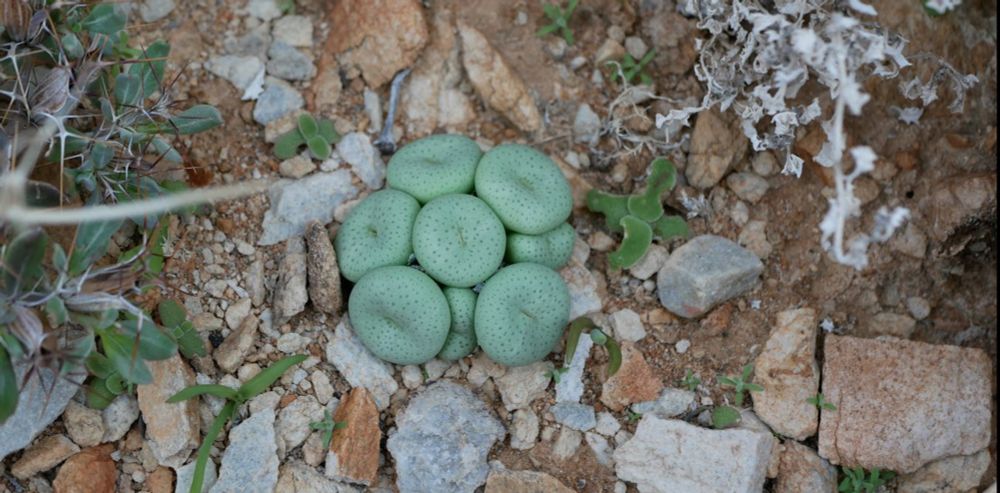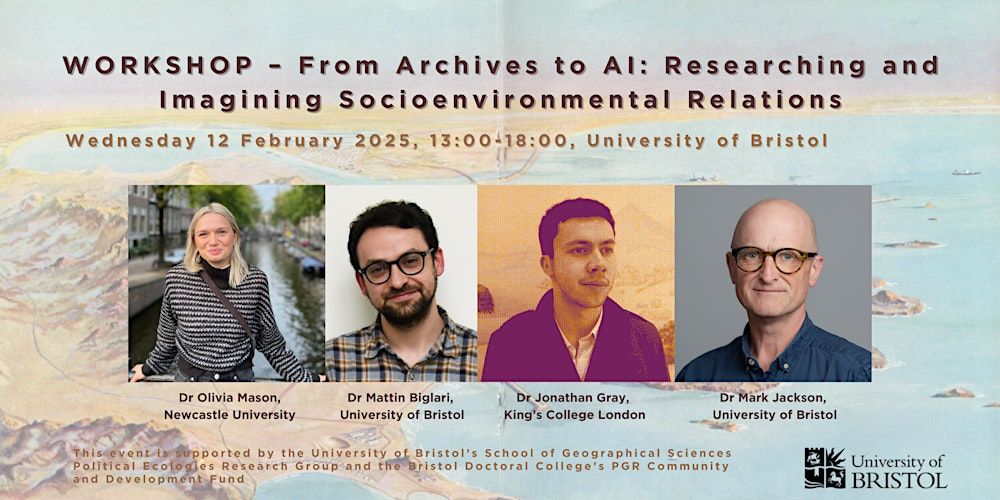
Screenshot of a paper abstract in Transactions by Austin Read (2025) entitled 'Infrastructure as archive: Examining the colonial geographies of rivers' with a red banner at the top.
Exploring the colonial geographies that have shaped Britain, this paper argues that recent debates regarding the ecological status of British rivers must centre colonialism and racial capitalism as the crucial drivers of river decline and thus prioritise developing anticolonial ecological politics. I anchor this argument in the River Severn in southwest Britain, which, until recently, was fragmented by hydraulic infrastructures such as weirs and canals. I examine here a conservation project that has built fish passes to reconnect the Severn's divided ecologies and unsettle technocratic framings of it as a silver bullet solution that bypasses political quagmires. I point instead to the five centuries of racial capitalist geographies that have shaped the Severn and insist that these cannot be avoided through engineering ingenuity. This paper's arguments are complex because entrenched spatial dichotomies of core/periphery have resulted in a lack of attention to how colonial geographies have shaped British ecologies like the Severn. The central contribution of this article is thus its development of a spatially relational theory and method of infrastructure as a colonial archive that can disrupt dichotomous core/periphery imaginaries and render spatially discontinuous and differential colonial geographies visible. I empirically develop this theory of infrastructure as an archive by deploying it to analyse the records of the Severn Navigation Commissioners (1835–c.1948), the body responsible for the infrastructural disciplining of the Severn.
#OpenAccess in TIBG:
'Infrastructure as archive: Examining the colonial geographies of rivers' by @austinread.bsky.social
doi.org/10.1111/tran... #geosky #geo
29.08.2025 11:20 — 👍 8 🔁 4 💬 0 📌 0
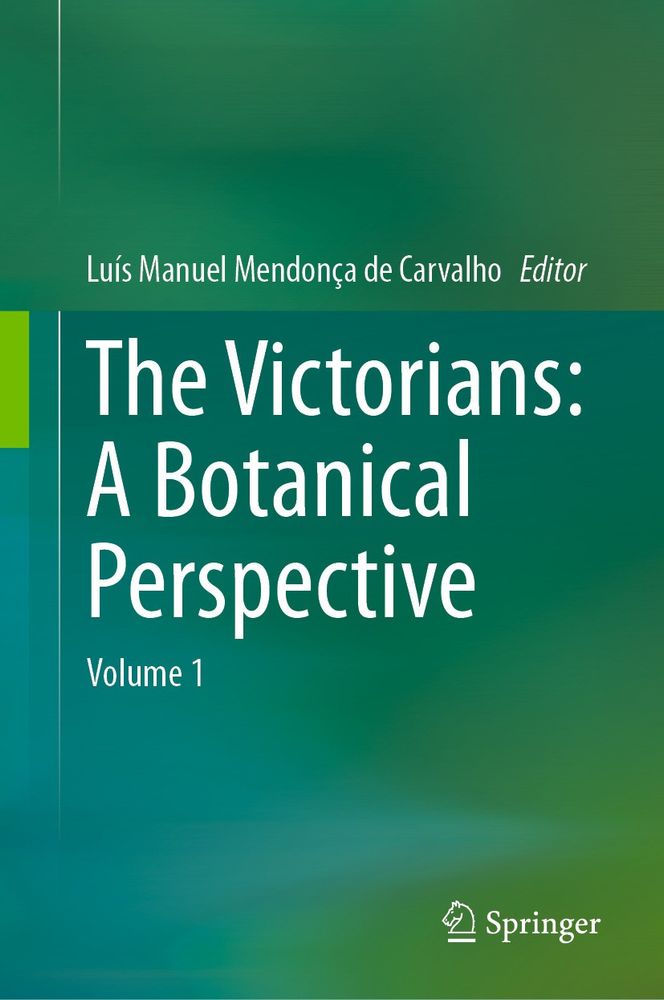
Cover of the book ‘The Victorians: A Botanical Perspective. Volume 1’, edited by Luís Manuel Mendonça de Carvalho and published by Springer.
📗 Luís Mendonça de Carvalho edited the book ‘The Victorians: A Botanical Perspective. Volume 1’ (Springer), which provides us with a 'unique re-evaluation of the Victorian Age and presents a new historiography based on plants'.
👉 link.springer.com/book/10.1007...
30.07.2025 16:11 — 👍 14 🔁 5 💬 0 📌 0
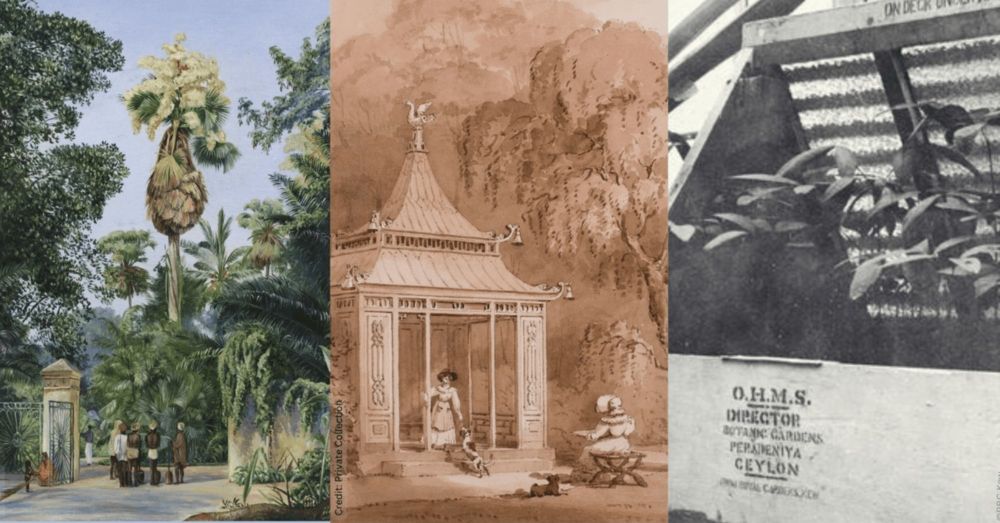
Gardens and Empires | British Library
The histories of plants and gardens are deeply entangled with the histories of empires. This conference investigates the impacts of these global connection
#GARDENS & #EMPIRES - booking open! International conference @britishlibrary.bsky.social 27-28 June Convened by #BL, @rbgkew.bsky.social & @englishheritage.bsky.social Speakers include
@advollyr.bsky.social @sathnam.bsky.social & @corinnefowler.bsky.social
Booking: events.bl.uk/events/garde...
18.04.2025 11:05 — 👍 23 🔁 16 💬 0 📌 0
Excited to be organising a session with Matthew Beach on ‘Practicing Vegetal Geographies: Creativities and Beyond’ for the RGS-IBG Annual Conference in Birmingham, 26-29th August 2025. Please take a look at our CFP if you are interested in plants, creativities, more-than-human geography! 🌱
22.01.2025 11:21 — 👍 7 🔁 3 💬 0 📌 0
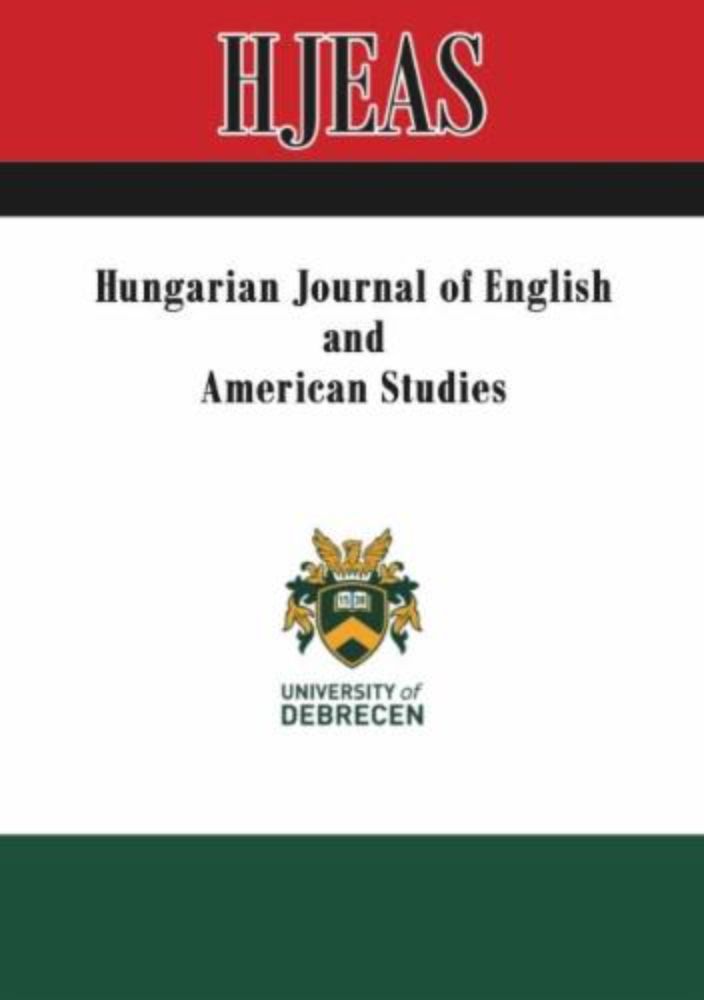
Digital Plant Encounters: Integrating Critical Plant...
The distinction between nature and technology is a western dichotomy that is slowly being eroded. As we are continuously confronted with humanity’s...
I am so glad to finally have this piece published with the wonderful Heather Rogers. Open access, so no excuse to not check it out.
Digital Plant Encounters: Integrating Critical Plant Studies with Digital Environmental Humanities sciendo.com/article/10.2...
25.11.2024 20:28 — 👍 15 🔁 2 💬 1 📌 1
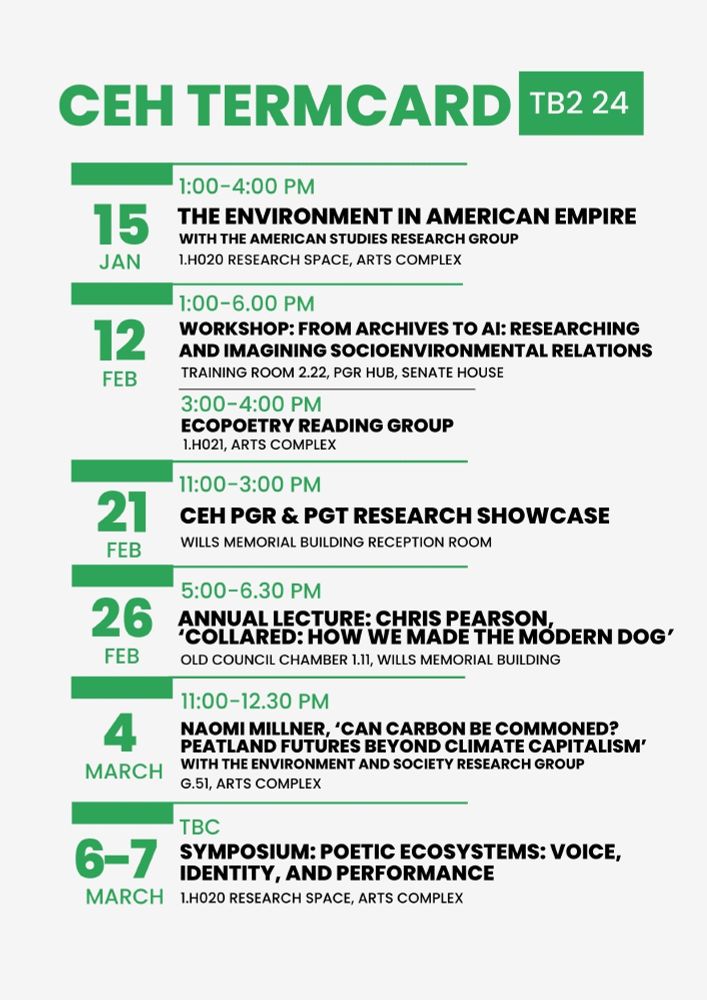
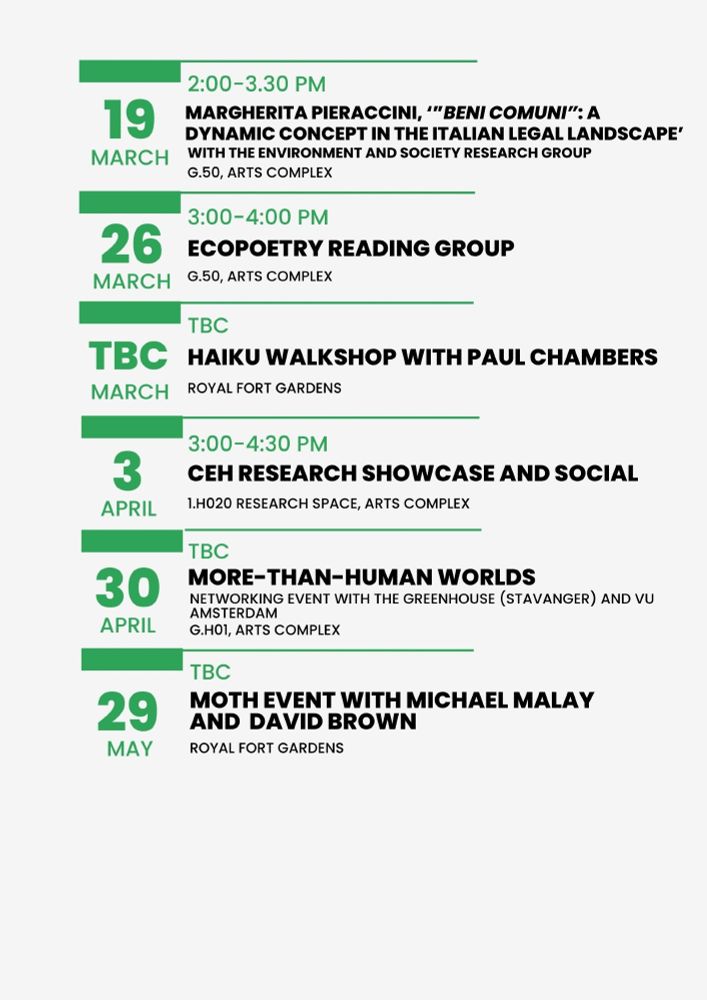
🥳 Behold! The CEH Termcard has landed and it's packed full of exciting events -- from workshops to walkshops, lectures to moth expeditions. We're so pleased to have @chrisjpearson.bsky.social back to deliver our annual lecture on the 26 February, along with many other brilliant speakers!
13.01.2025 11:28 — 👍 11 🔁 7 💬 1 📌 3
Looking forward to meeting you in Bristol!
10.01.2025 17:42 — 👍 1 🔁 0 💬 0 📌 0
Huge thanks to Harry Fitzpatrick-Grimes and @austinread.bsky.social for co-organising the event at different stages 🥹 And thanks @jamesrpalmer.bsky.social and Negar Elodie Behzadi for constant guidance and the funding support from the Political Ecologies Research Group and Bristol Doctoral College
06.12.2024 13:46 — 👍 3 🔁 0 💬 0 📌 0
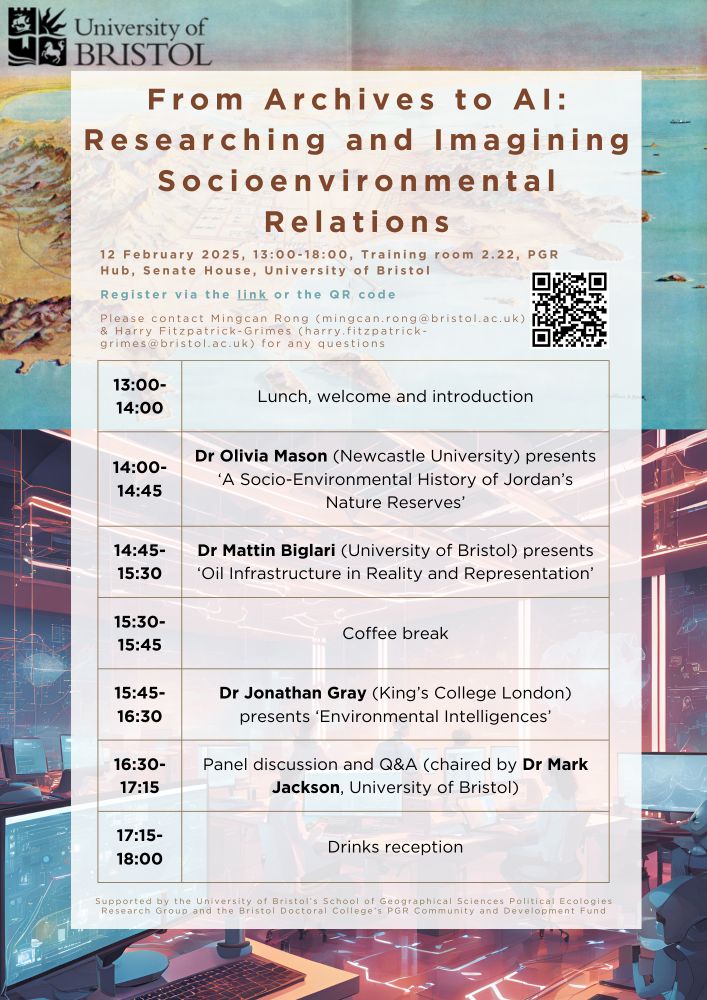
Our workshop ‘From Archives to AI: Researching and Imagining Socioenvironmental Relations’ will be held at Bristol on 12 Feb 2025, which includes talks by @oliviamason.bsky.social @mattinbiglari.bsky.social @jwyg.bsky.social & a panel discussion chaired by Mark Jackson! 🤩
Please find details below!
06.12.2024 13:36 — 👍 9 🔁 3 💬 2 📌 2
One more reading for next term’s Plants and Geographies reading group 🤩🍃🌳
04.12.2024 18:51 — 👍 3 🔁 0 💬 0 📌 0
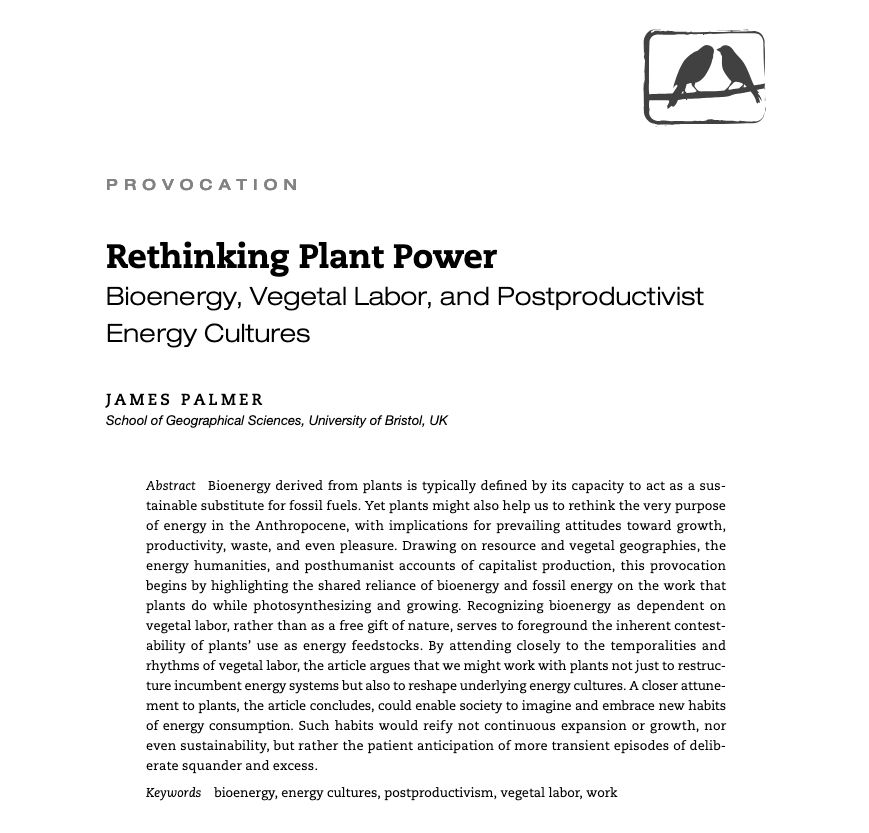
I've written a piece on biofuels and the potential for plants to help us rethink relationships between energy, growth and productivity – just out in Environmental Humanities 🌿🌳🌾
Thanks to @dollyjorgensen.bsky.social & Franklin Ginn for making space for this!
read.dukeupress.edu/environmenta...
04.12.2024 11:32 — 👍 22 🔁 6 💬 0 📌 2

Sage Journals: Discover world-class research
Subscription and open access journals from Sage, the world's leading independent academic publisher.
Marion Ernwein and I have a new paper out in EPE: Nature & Space:
"Making the mos(s)t of nature? Cleantech, smart nature-based solutions, and the ‘rendering investable’ of urban moss"
Hopefully of interest to vegetal geographers and critical NBS scholars 🌿🌱🌳🌍
journals.sagepub.com/doi/10.1177/...
25.11.2024 10:59 — 👍 13 🔁 4 💬 1 📌 0
PhD student ◇ Ecocriticism, Folk Horror, Monstrosity, David Rudkin, (eco)gothic ◇ 1/3 of @makingitwyrd.bsky.social
Research group working on 🌿plants🌴 in early modern natural philosophy - Studies of🌾Plant Physiology, Envinroment, Medicine, Anatomy and Society #histsci #envhist #histplants #plantstudies
ESRC-funded PhD Human Geographer @cugeogplan.bsky.social. Researching tree disease and treescape restoration.
Doctoral candidate from Hackney researching the urban landscapes of twenty-first century London
blog: https://zuhrijames.wordpress.com
Professor in crop biotechnology at UQ; love all types of football especially AFL. Perpetual searcher for the world’s finest beer.
📸 Photographer | capturing life's candid moments with my camera 📸
🌍 https://rupertrivett.photoshelter.com 🌍
#RealStreetPhotography #Photojournalism|
Skilled in unobtrusive, authentic #storytelling
📣NEW SUBSTACK 📔
👇📸👇📸👇📸👇📸
https://rupephoto.substack.com/
Sentientism, food policy for desired/anticipated consumption patterns, plant-based for climate, consumption behaviour, history and reporting of global goals, framing.
Geography in the Public Interest: The GJ publishes original research in human and physical geography which engages with public issues and policy-relevant agendas.
Edited by Peter Hopkins, Paul Milbourne, Joanna Bullard, Rebecca Collins & Trivik Verma
We are the UK’s learned society and professional body for geography, supporting geography and geographers across the world.
Mexican Historian & Philosopher of Biology • Postdoctoral Fellow at @theramseylab.bsky.social (@clpskuleuven.bsky.social) • Book Reviews Editor for @jgps.bsky.social • #PhilSci #HistSci #philsky • Escribo y edito • https://www.alejandrofabregastejeda.com
#Sustainability scholar @northumbriauni.bsky.social #EnvironmentalEducation #SustainableBusiness #Biodiversity #Animals #Climate Wary of polarization, viral slogans & echo chambers https://scholar.google.nl/citations?user=pE0rWdgAAAAJ&hl=nl
Area publishes concise papers and commentaries that shape key debates within and beyond the discipline of geography. Area is especially welcoming of work by early career researchers & awards an annual ECR prize.
The Biodiversity Heritage Library provides free & #OpenAccess to 63+ million pages of #biodiversity literature online. 🔗 biodiversitylibrary.org
Assistant Professor, Environmental Studies, NYU
Primatologist, Author of THE ARROGANT APE
https://www.cewebb.com
PhD Researcher at QMUL & Kew Gardens,
Proud gecko mum (she/her).
Lecturer in Lit and Environment at @bristoluni.bsky.social | Co-director @uobrisceh.bsky.social
Writing: Marine Attachments 🦀🐚🪼🐙
https://www.bristol.ac.uk/people/person/Rachel-Murray-fc3d0780-8a1b-4a92-9676-5c862ea56faa/
🦋Ecologist and Conservationist
🌳UK National Parks Advocate
🦬Chair Sussex Mammal Group
🪲Researcher on pond creation & management + invertebrates as bioindicators
🦫Access to Nature and Inclusion in STEM
📍Sussex, UK
💐 linktr.ee/robsonpeisley
Researching intellectual property and plants, food, and agriculture 🌿
Lecturer at Queen's University Belfast
🏳️🌈 she / her
Research scientist 🍇🖥️🌱🦠🔬
Plant Pathology | 3D+t imaging | MRI | Xrays tomography | IA | Image Analysis
Trunk diseases | Fungal Pathogens | Genetics | Molecular Biology | Grapevine | Breeding & Selection
Working at French Wine and Vine Institute
France
https://www.co2.earth/ https://bsky.app/starter-pack/llewelynpritch.bsky.social/3latkd27lhd2e
https://www.blueskypacks.com/starter-packs/affordable-travel-bookstore
🚫PornDatingFansListDMsMAGATrumpMuskNazislluminati🚫











